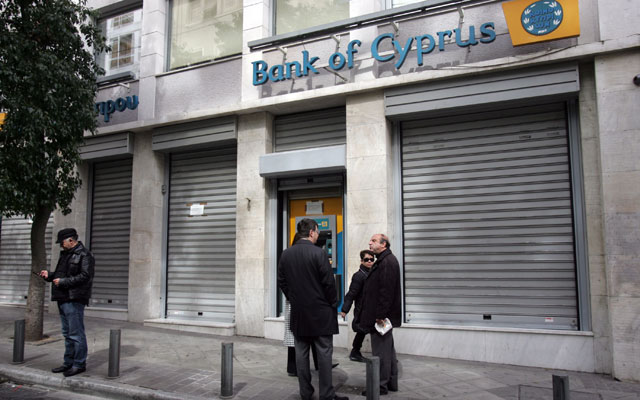Hezbollah Terrorist Conviction in Cyprus: When will the EU Act?
Daniel Kochis /
A Cypriot court on Thursday sentenced a member of the terrorist organization Hezbollah, Hossam Taleb Yaacoub, to four years in jail for planning to attack Israeli citizens and targets in Cyprus.
Yaacoub’s conviction a week earlier marked the first time a Hezbollah member had been found guilty in a European court of plotting attacks against Israelis. His conviction and jail sentence have shed a spotlight on Europe’s current aversion to listing Hezbollah as a terrorist organization.
While an admitted member of Hezbollah, the Lebanese-Shia terrorist organization, Yaacoub pled not guilty to the charges in Cyprus and denied plotting to kill Israeli citizens. His conviction raises the question of whether the EU is doing enough to shut down Hezbollah’s operations, including fundraising on European soil.
Currently a few countries, including the United States, list Hezbollah as a terrorist organization, a step that allows authorities to target the group’s financial assets and to employ a wider array to law enforcement measures in order to take legal action against its members. While the EU does not currently list Hezbollah as a terrorist organization, the Netherlands does and the United Kingdom has listed the military wing of Hezbollah as a terror group.
The pressure on the EU to list Hezbollah is growing. On July 18, 2012, Hezbollah terrorists detonated a bomb on a bus in Burgas, Bulgaria, killing five Israeli tourists and a Bulgarian bus driver. In February, the Bulgarian government officially announced what was already widely suspected, that Hezbollah had carried out the attack.
With Hezbollah terror activities now officially confirmed in two EU countries, the question now becomes: Will the EU act? As Heritage’s Jim Phillips explains:
The EU can no longer afford to ignore Hezbollah’s festering threat or hope to deflect its attacks onto other countries. The longer the EU balks at effective action, the stronger the potential threat grows, funded by the free flow of donations, diverted charitable funds, and criminal booty out of the EU and the payments for drugs smuggled into the EU.
Hezbollah is becoming more and more brazen in its worldwide terror activities, and strong evidence now exists that the group is behind terrorist activities in Bulgaria and Cyprus. Yet, the EU continues to dawdle, unable to come to a conclusion that is obvious to the rest of the world.
The EU’s failure to reach an agreement regarding listing Hezbollah as a terrorist organization is proof that the bureaucratic, supranational, unaccountable nature of the EU hampers its ability to seriously address security issues. The sooner the EU comes to the realization that closing its collective eyes to Hezbollah won’t make the problem go away, the better for us all.

